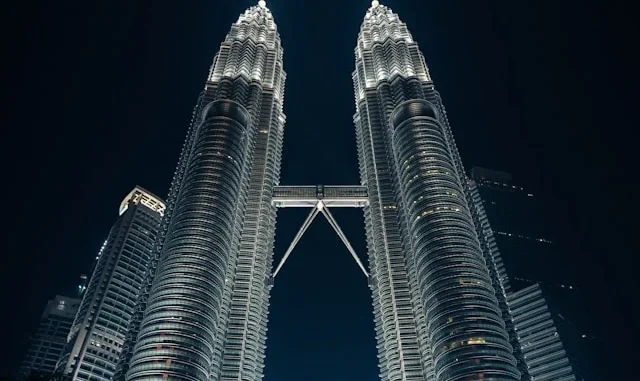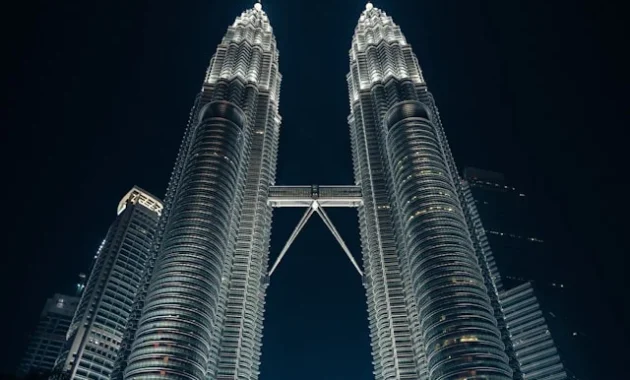
Malaysia is a captivating country located in Southeast Asia, known for its diverse cultural heritage, stunning landscapes, and rich history. As we embark on a journey through Malaysia, we will explore the various aspects that make this country a unique and fascinating destination.
A Melting Pot of Cultures
Malaysia is often referred to as a cultural melting pot due to its blend of Malay, Chinese, Indian, and indigenous cultures. This cultural diversity is reflected in the country’s festivals, cuisine, and daily life.
Malay Culture
The Malay culture is the backbone of Malaysia, with its roots deeply embedded in the country’s traditions and customs. Malays form the largest ethnic group in Malaysia, and their influence is seen in the national language, Bahasa Malaysia, and the practice of Islam as the predominant religion.
Chinese Influence
The Chinese community in Malaysia has played a significant role in shaping the country’s cultural and economic landscape. Chinese Malaysians celebrate traditional festivals such as Chinese New Year and the Mid-Autumn Festival, adding to the country’s vibrant cultural tapestry. The influence of Chinese cuisine is also prominent, with dishes like char kway teow and Hainanese chicken rice being popular across Malaysia.
Indian Heritage
Indian culture in Malaysia is primarily represented by the Tamil community, who have brought their rich traditions, festivals, and cuisine to the country. Festivals such as Deepavali and Thaipusam are celebrated with great enthusiasm, and Indian cuisine, including dishes like roti canai and nasi kandar, are beloved by Malaysians of all backgrounds.
Indigenous Traditions
Malaysia is also home to a variety of indigenous groups, each with its own unique culture and traditions. The largest indigenous groups include the Iban, Kadazan-Dusun, and Orang Asli, who continue to preserve their traditional ways of life while contributing to Malaysia’s cultural diversity.
A Rich Historical Heritage
Malaysia’s history is as diverse as its culture, with influences from ancient civilizations, colonial powers, and modern developments.
Early History
The early history of Malaysia is marked by the rise of powerful kingdoms and trading ports. The ancient kingdom of Langkasuka, believed to have been established in the 2nd century, is one of the earliest known civilizations in the region. The Srivijaya Empire, based in Sumatra, also had a significant influence on the Malay Peninsula during the 7th to 13th centuries.
Colonial Era
Malaysia’s strategic location made it a desirable target for colonial powers. The Portuguese were the first Europeans to establish a presence in Malaysia, capturing the Malacca Sultanate in 1511. The Dutch followed, taking control of Malacca in 1641. However, it was the British who had the most lasting impact, establishing colonies in Penang, Malacca, and Singapore in the late 18th and early 19th centuries. The British also formed the Federated Malay States in 1895, further solidifying their control over the region.
Independence and Modern Malaysia
Malaysia gained independence from British rule on August 31, 1957. The formation of Malaysia occurred on September 16, 1963, when the Federation of Malaya, Singapore, Sabah, and Sarawak merged to form a single nation. Although Singapore later separated in 1965, Malaysia has continued to grow and develop as a unified country.
Spectacular Landscapes and Natural Wonders
Malaysia is blessed with a diverse range of natural landscapes, from pristine beaches and tropical rainforests to towering mountains and bustling cities.
Breathtaking Beaches
Malaysia boasts some of the world’s most beautiful beaches, attracting tourists from around the globe. Langkawi, an archipelago of 99 islands, is renowned for its white sandy beaches and crystal-clear waters. The Perhentian Islands and Tioman Island are also popular destinations for beach lovers and scuba diving enthusiasts.

Lush Rainforests
Malaysia’s rainforests are among the oldest in the world, offering a haven for wildlife and plant species. Taman Negara, Malaysia’s premier national park, is home to a diverse array of flora and fauna, including the Malayan tiger, Asian elephant, and various species of birds and insects. The Kinabalu Park in Sabah, a UNESCO World Heritage Site, is another must-visit destination for nature lovers.
Majestic Mountains
Mount Kinabalu, located in Sabah, is the highest peak in Southeast Asia, standing at 4,095 meters. It is a popular destination for hikers and adventure seekers, offering breathtaking views of the surrounding landscapes. The Cameron Highlands, known for its tea plantations and cool climate, is another mountain retreat that attracts visitors seeking a respite from the tropical heat.
A Culinary Adventure
Malaysia’s cuisine is a reflection of its cultural diversity, offering a tantalizing array of flavors and dishes.
Malay Cuisine
Malay cuisine is characterized by its use of aromatic herbs and spices, such as lemongrass, galangal, and turmeric. Popular dishes include nasi lemak, a fragrant rice dish cooked in coconut milk and served with sambal, anchovies, peanuts, and boiled eggs, and rendang, a slow-cooked beef dish infused with rich spices.
Chinese Cuisine
Chinese cuisine in Malaysia ranges from street food to fine dining, with a focus on fresh ingredients and bold flavors. Some popular dishes include hokkien mee, a stir-fried noodle dish with prawns and pork, and bak kut teh, a flavorful pork rib soup with medicinal herbs.
Indian Cuisine
Indian cuisine in Malaysia is known for its vibrant flavors and use of spices. Banana leaf rice, where rice and various curries are served on a banana leaf, is a popular way to enjoy a meal. Tandoori chicken, marinated in yogurt and spices and cooked in a clay oven, is another beloved dish.
Festivals and Celebrations
Malaysia’s festivals are a testament to its cultural diversity, with each community celebrating its own unique traditions.
Hari Raya Aidilfitri
Hari Raya Aidilfitri, also known as Eid al-Fitr, is a major Muslim festival celebrated by Malaysians. It marks the end of Ramadan, the Islamic holy month of fasting. The celebration is marked by prayers, feasting, and the giving of alms to the less fortunate.
Chinese New Year
Chinese New Year is one of the most important festivals for the Chinese community in Malaysia. It is celebrated with lion dances, fireworks, and the giving of red envelopes filled with money. Families come together to enjoy reunion dinners and traditional dishes.
Deepavali
Deepavali, also known as the Festival of Lights, is celebrated by the Indian community in Malaysia. It symbolizes the triumph of light over darkness and good over evil. The festival is marked by the lighting of oil lamps, colorful rangoli designs, and feasts of traditional Indian dishes.
Modern Malaysia: A Blend of Tradition and Progress
While Malaysia is deeply rooted in its cultural heritage and traditions, it is also a modern and rapidly developing country.
Urban Centers
Cities like Kuala Lumpur, the capital of Malaysia, showcase the country’s modernity with their skyscrapers, shopping malls, and vibrant nightlife. The Petronas Twin Towers, once the tallest buildings in the world, are an iconic symbol of Malaysia’s progress.
Economic Growth
Malaysia has experienced significant economic growth over the past few decades, transforming from a predominantly agricultural economy to one that is driven by manufacturing, services, and tourism. The country is known for its electronics, palm oil, and rubber industries, as well as its thriving tourism sector.
Education and Innovation
Malaysia is also making strides in education and innovation. The country is home to several world-class universities and research institutions, and it is investing in technology and innovation to drive future growth.
As we conclude our journey through Malaysia, it is evident that this country is a remarkable blend of rich culture, diverse heritage, and modern development. From its ancient traditions to its bustling cities, Malaysia offers a unique and unforgettable experience for all who visit.